Dominic Xavier/Rediff.com steps into the magical world that is the spectacular Kochi-Muziris Art Biennale.
The first edition of the Kochi-Muziris Art Biennale was the only Indian destination mentioned in Forbes magazine's list of '13 cultural events to be seen' across the world.
The second edition, which opened on December 12, 2014, across eight venues in Kochi, features 94 artists from across the world.
The theme for the spectacular event, which celebrates New Age art, is Whorled Explorations.
It highlights Kochi's history of maritime explorations and cosmology from the 14th to the 17th century and includes the works of sculptor Anish Kapoor and contemporary artists Francesco Clemente, Akbar Padamsee and Sudhir Patwardhan.
Some glimpses from this amazing Biennale.
Anish Kapoor, Descension
Main Building, Aspinwall House
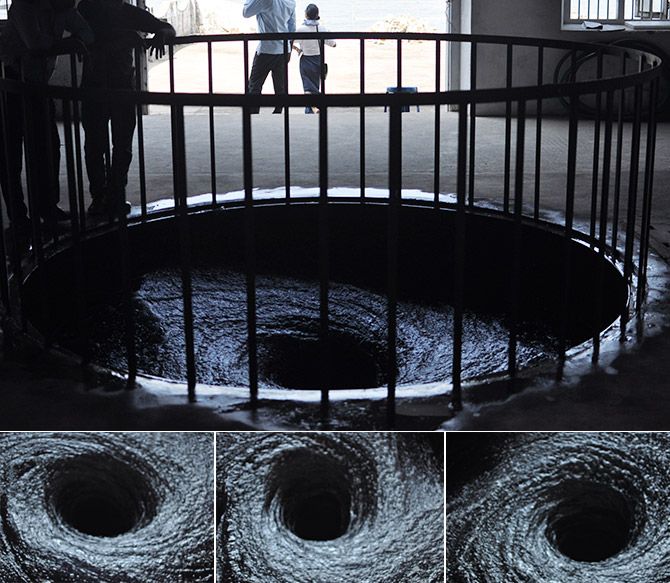
Mumbai-born, Britain-based Anish Kapoor's first on-site installation in India has attracted a large number of visitors.
Descension is an actual whirlpool created in a deep hole in the gallery. Its constantly swirling black water creates a mesmerising effect as it 'descends into a void of complete darkness.'
Francesco Clemente, Pepper Tent
Aspinwall House
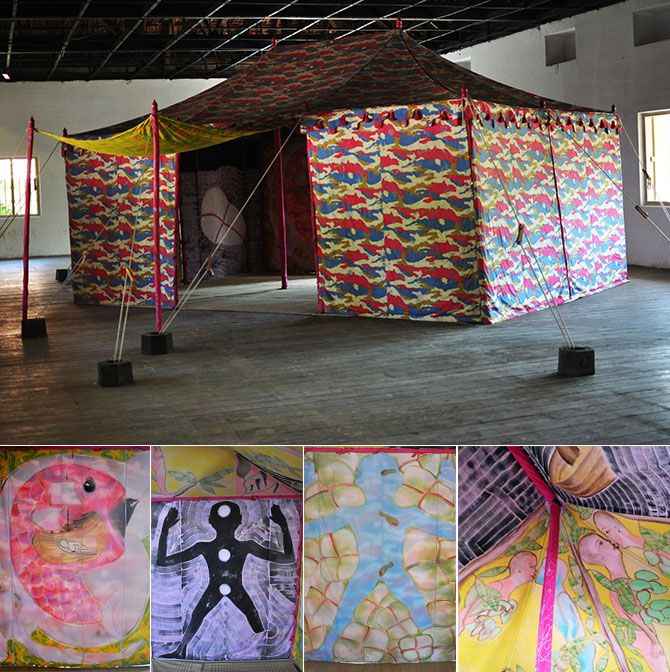
Franceso Clemente's first installation at the Kochi Biennale has been inspired by Kerala's ancient spice trade.
The Italian artist told the New Indian Express that he has 'lived in Chennai' on and off through the 1970s and 'spent part of the year in India since he was 19.'
Some of the other Indian cities that have had a profound influence on him are Varanasi, Madurai and Jodhpur.
Describing his installation in the New Indian Express, he said, 'The images range from stars to pepper corns (indicating travel and trade). There is a painting of a navigator who drops anchor and rests amidst all the retreating sailing ships. The painted tent was then taken to Rajasthan where a group of tent-makers helped me assemble it and finally it travelled to Kochi where it 'dropped anchor'.'
Madhusudhanan, Logic of Disappearance
Aspinwall House
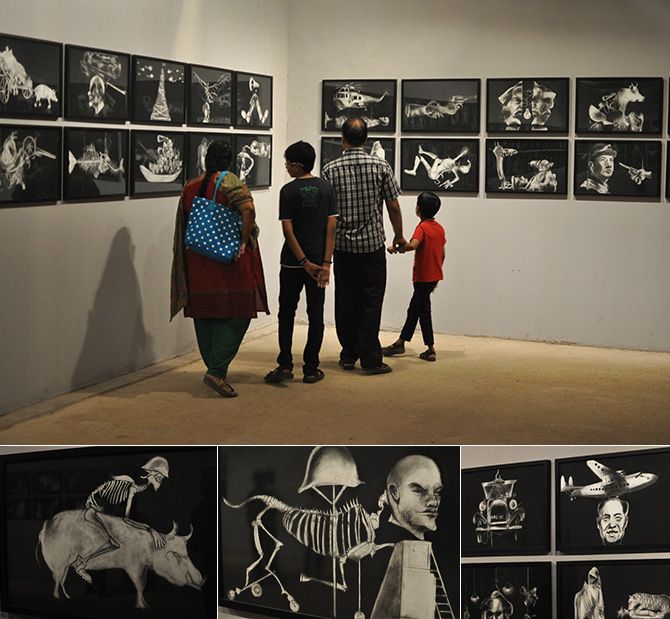
An amazing series of 90 charcoal drawings featuring Lenin, Stalin, Marx and a pig... eloquent, yet disturbing.
Mona Hatoum, Undercurrent
Aspinwall House
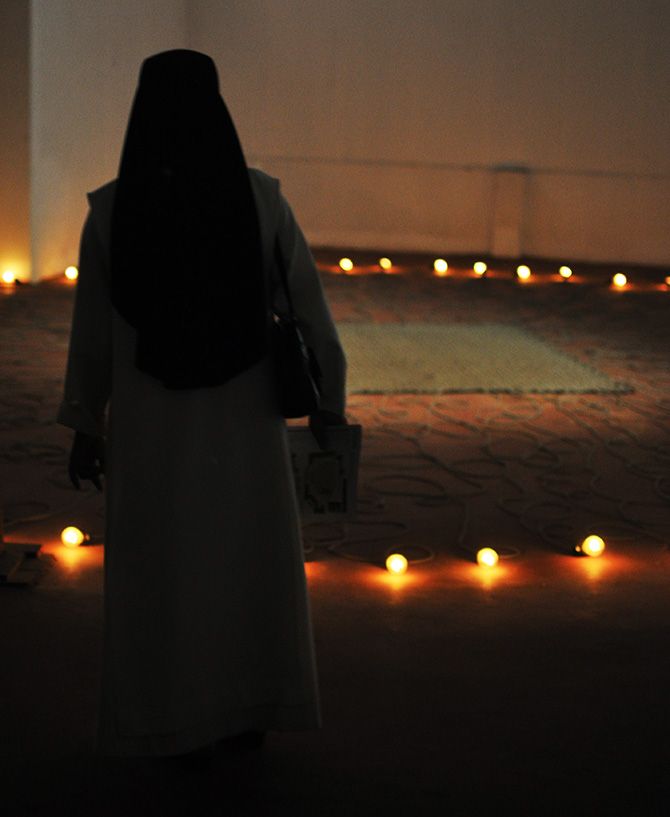
Using light bulbs, cloth-covered electric cables and a computerised dimmer, Mona Hatoum has created a circular, interwoven pattern of throbbing lights.
The Palestinian artist, who divides her time between London and Berlin, has created an installation whose flickering lights spell danger in various forms.
Janine Antoni, Touch
Aspinwall House
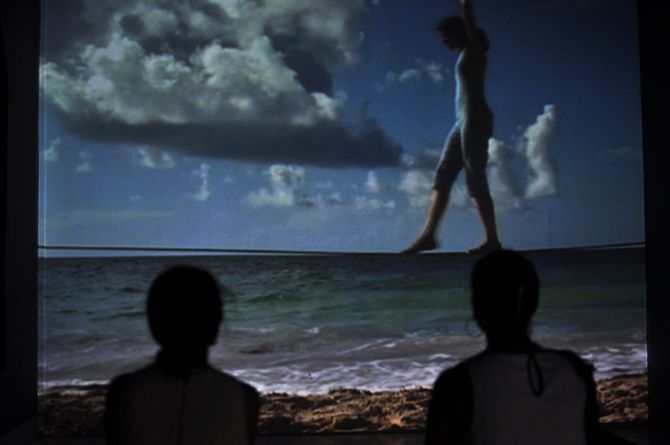
Janine Antoni comes from a tiny island in the Bahamas that you might find difficult to spot on the map.
This video installation is about her belief in the future, about the fact that we can soar on the wings of our imagination.
Shot in the beach near her childhood home, it shows the artiste walking a tightrope that seems to touch the horizon with every step she takes.
Nikhil Chopra, La Perle Noire II
Aspinwall House
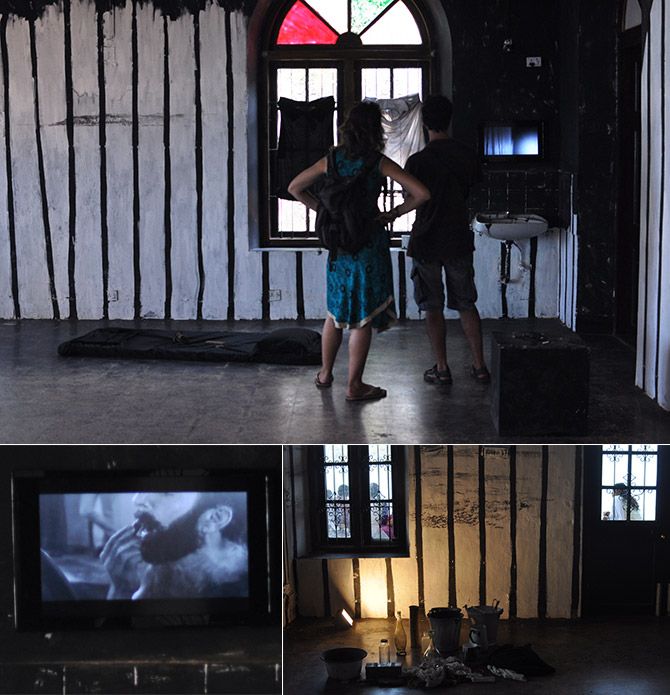
Nikhil Chopra's La Perle Noire II (The Black Pearl) is a performance art installation, in which the artiste imprisoned himself for over fifty hours in a cell.
Reaching out through its bars, he uses charcoal to sketch the scenes he can see through the windows, in which the river Periyar dominates, ultimately covering himself with the dark material in what has been described as a rivetting performance.
The 'black pearl' is also synonymous with pepper, a spice that permeates the history of Kerala.
Sudhir Patwardhan, Building a world: Exploring the World
Aspinwall House
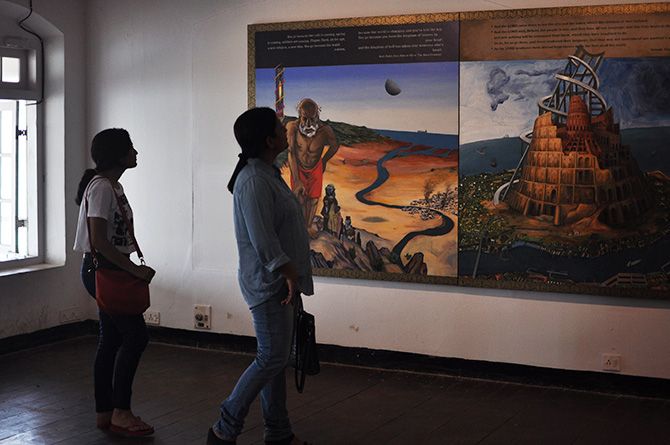
The first of Sudhir Patwardhan's three-panel image shows that Man has always been a migrant -- in search of food, or safety from war or because of his desire for a better future.
The second panel shows the famed Tower of Babel -- symbolic of the Earth's multiple languages and Man's desire to communicate -- on which leans the incomplete Tatlin Tower, which had been commissioned in 1919 in Russia. Both are set in the ancient Indian island of Kochi, symbolising the Man's desire for unity.
The third panel (not visible in this image) show Man's desire to know of more the Universe in the form of two astronauts holding a golden disc (golden disc, inscribed with our planet's history, have been sent to space on the Voyager).
David Horovitz, The Distance of a Day
Aspinwall House
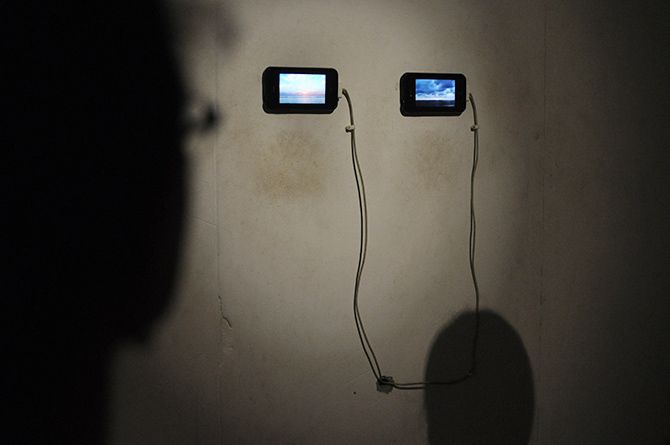
David Horovitz's shows the video of a sunrise (the beginning) and a sunset (the end) taken at the same time in two different parts of the globe.
Lavanya Mani, Travellers Tales -- Blueprints
Aspinwall House
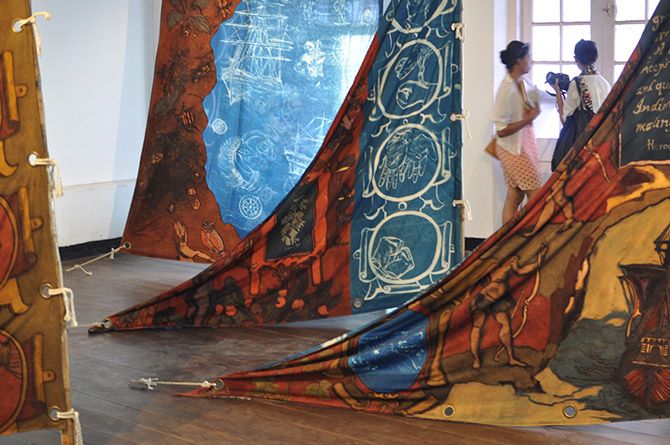
Lavanya Mani has opted to the Kalamkari technique of using natural dye to paint on cloth.
Each carefully crafted painting was exhibited in the form of the sail of a boat that seemed to show both India's rich history in textiles, as well as the role of the sea in India's evolution.
Pors and Rao, Islander
Aspinwall House
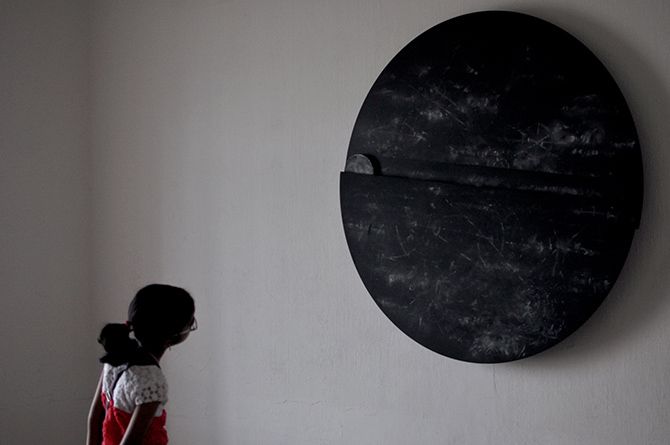
In an unusual mix of engineering and art, Pors and Rao doff their creative hat towards the island of Kochi.
Their installation, a black that that gently rolls back and forth, creates the impression of the sun being glimpsed through the porthole of a bobbing ship.
N S Harsha, Punarapi Jananam Punarapi Maranam
Aspinwall House
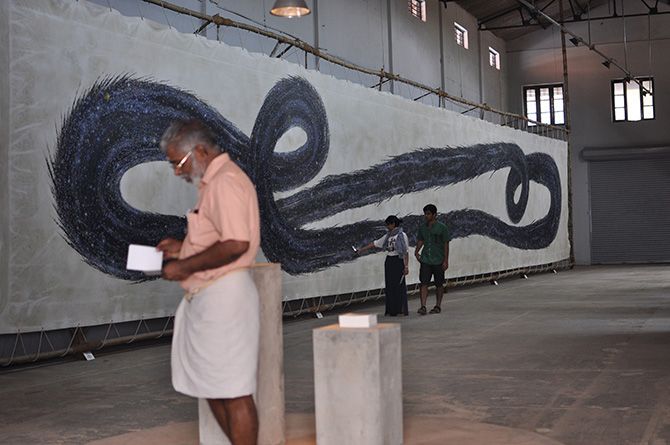
In order to view Harsha's 80-foot long acrylic-on-canvas, one has to walk from one end of the painting to another.
The painting, which is dotted with luminous stars and planets, represents the unending cycle of birth and death and is aptly titled Punarapi Jananam Punarapi Maranam (Birth Again, Death Again).
Benitha Perciyal, The Fires of Faith
Pepper House
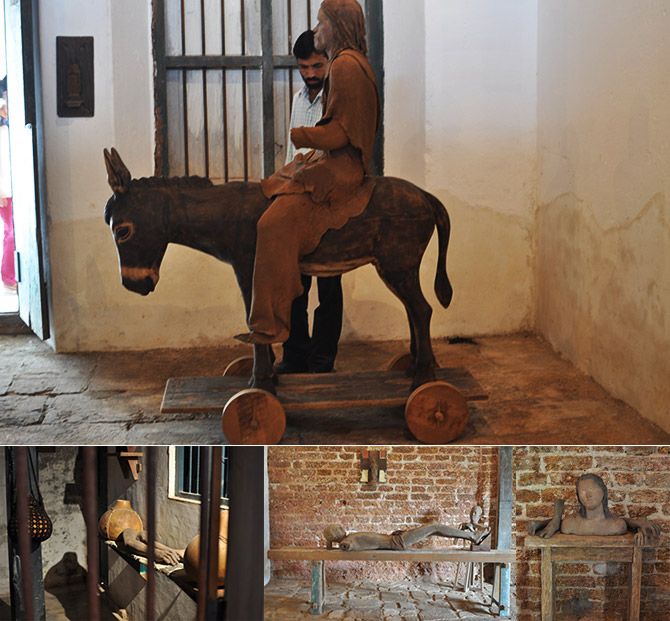
Frankincense, cinnamon, cloves, cedar wood, myrrh and other sweet-smelling ingredients have gone into the creation of Benitha Perciyal's The Fires of Hope.
A reminder that the town of Matancherry once traded figurines, these seemingly antique figures are meant to deteriorate as the Biennale winds its way towards its last day.
Don't miss Part II of this fascinating feature.










